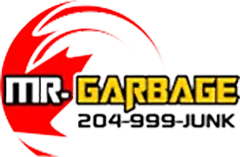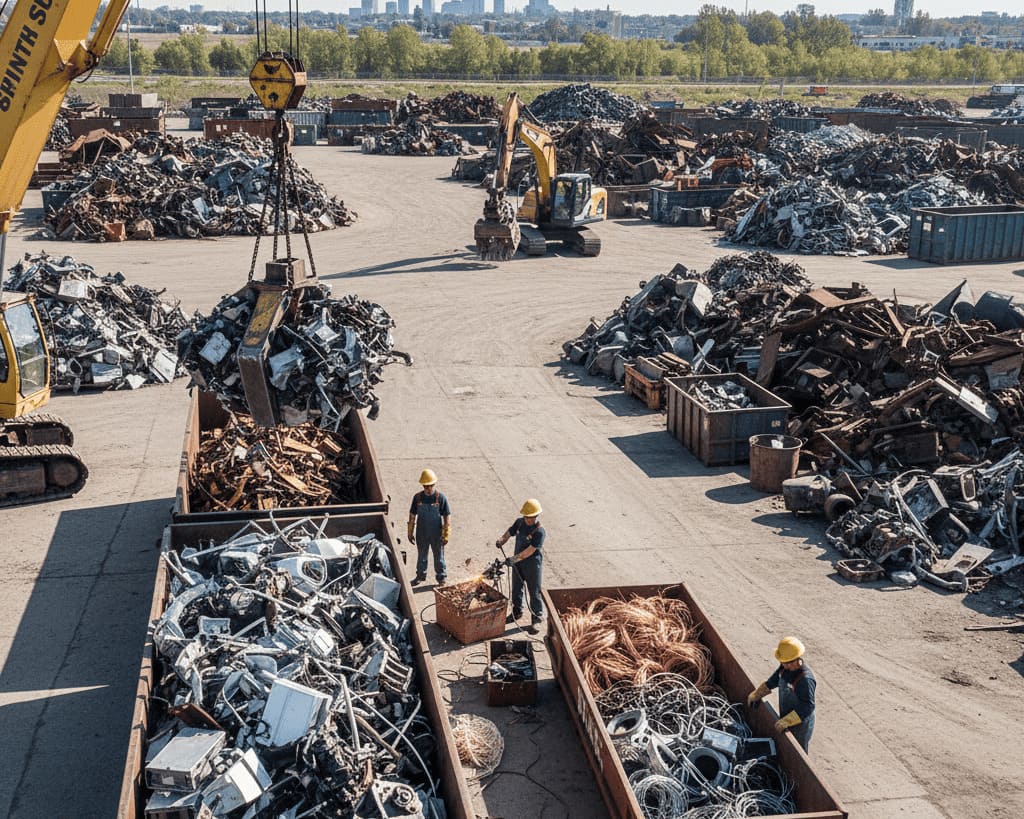Running a business means handling waste, and doing it well matters. The right commercial waste management program reduces headaches, keeps staff and customers safe, and helps your business meet local rules and sustainability goals. This guide walks Winnipeg business owners through local rules, common waste streams, container choices, sorting and contamination best practices, and real-world examples of programs that work. I’ll also explain when to work with a specialist like Mr. Garbage to simplify logistics and stay compliant.
What does commercial waste management mean in Winnipeg?
At its simplest, commercial waste management is the system businesses use to collect, sort, store, and move waste from their site to a legal endpoint recycling, composting, or disposal. In Winnipeg, municipal services, stewardship programs, and private haulers all play a role. Businesses must navigate municipal rules for collection and depot use while also dealing with regulated materials such as electronics and batteries through producer stewardship programs. For many businesses, mixing municipal and private services is the practical approach.
Why this matters locally: well-run commercial programs reduce contamination in recycling streams, lower safety risks in front-of-house and back-of-house areas, and support local recycling markets that rely on steady, clean supplies of material. The national picture shows diversion is improving, but businesses remain a key source of recyclable material and an important part of the solution. Canada.ca
Common commercial waste management streams businesses must plan for
Not all waste is the same. A clear plan separates streams so materials go to the right place.
Paper, cardboard, and packaging
Corrugated cardboard and mixed paper are the backbone of commercial recycling. Flattened cardboard saves space and keeps the collection efficient. Many private haulers provide front-load bins specifically shaped for cardboard and baling operations. Clean, dry cardboard has real market value. Keep it free of food, oil, and film plastic for best results.
Containers and organics
Retail and food-service businesses produce containers (plastic, metal, glass) and food waste. Where municipal organics programs exist, food scraps should go to organics carts or dedicated commercial organics services. For containers, keep rinse-residue low and avoid putting food-soiled items in the container stream. Separate organics at source: it’s the single most effective action to reduce residual waste. City of Winnipeg
Electronics and special materials
Electronics, batteries, and some lighting are regulated under producer stewardship programs. Businesses must use approved drop-off networks or commercial collection routes to ensure secure, environmentally sound processing. Programs such as Recycle My Electronics maintain a network of authorized processors and drop-off points for commercial and residential streams. Recycle My Electronics
Hazardous and regulated waste
Certain wastes from commercial kitchens, automotive shops, or healthcare operations require special handling: grease traps, cooking oils, solvents, sharps, or chemicals. These streams must be collected and processed by licensed handlers to protect workers and the environment.
How to design a practical commercial waste management program
Designing a program doesn’t need to be complicated. Follow a three-step process: audit, design, and pilot.
Step 1: Audit your waste
Spend a week tracking what you throw away and where it goes. Note volumes and times — does cardboard build up on delivery days? Is food waste concentrated at lunchtime? An audit gives you the data to choose container types and pickup schedules that actually match your needs.
Step 2: Design containers and routes
Choose containers that fit your available space and material. Typical options include front-load bins for cardboard, lockable bins for confidential paper, organics carts for food waste, and compactors where volumes are very high. Match pickup frequency to your business rhythm; frequent pickups for food service, less frequent for offices. A good hauler will help you size bins and recommend placements to avoid blocking entrances or loading bays.
Step 3: Pilot and train staff
Run a short pilot and train staff on sorting rules. Clear signs, colour-coded bins, and regular reminders are effective. Measure contamination, adjust, and repeat.
Mr. Garbage provides audits, bin options, and tailored pickup schedules for Winnipeg businesses, making it easy to implement a practical program without guesswork. Mr. Garbage
Container choices: what works for Winnipeg businesses
Choosing the right container keeps operations smooth.
- Front-load bins: standard for cardboard and recyclables in retail and warehouses.
- Lockable confidential bins: for offices needing secure paper disposal.
- Organics carts and bins: for restaurants and cafeterias to collect food scraps.
- Compactors: useful where space is tight and cardboard volumes are large.
- Roll-off containers and bins: for construction sites and large cleanouts.
Place bins where staff naturally use them, not where they’re out of the way. Convenience beats rules when building new habits.
Preventing contamination: the single most important operational detail
Contamination kills value. When food, film, plastic, or liquids get into paper or cardboard bins, entire loads can be rejected. Simple, focused tactics change behaviour:
- Put a small container for food scraps at the point of use.
- Use signs with pictures, not just words; they work faster.
- Train new staff for five minutes during onboarding.
- Do quick visual spot-checks weekly and share results with the team.
A short, consistent feedback loop, hauler reports → supervisor review → staff reminder, drives fast improvement.
Commercial kitchen waste management: special considerations
Kitchens are waste-intensive and require tailored plans.
- Use grease interceptors and licensed haulers for cooking oil and large-volume waste.
- Source-separate organic material and use certified organics processors where possible.
- Manage packaging in the back-of-house to keep cardboard and containers clean for recycling.
- Where disposers are used, confirm local regulations and whether the system affects organics collection.
Kitchens that invest a little time in sorting realize cleaner streams and fewer hygiene issues.
Legal and stewardship obligations for businesses in Winnipeg
Businesses must follow municipal rules on collection and depot use. The City of Winnipeg allows certain small commercial customers to use 4R depots for some streams, but businesses generally rely on private contracts for regular collection. For regulated streams, electronics, and batteries, businesses should use approved stewardship programs to meet legal and environmental expectations.
Documenting where regulated materials go is a good practice. If you’re a property manager or business owner questioned by a tenant or regulator, clear documentation of pickups and certified processing protects you.
Measuring performance: KPIs that matter for commercial waste management
Track a few simple key performance indicators:
- Diversion rate: the share of material diverted from landfill.
- Contamination rate: percent of loads rejected or flagged.
- Pickup reliability: missed pickups or missed schedules.
- Cost per service: track service efficiency; not price, but what you get for your schedule and cleanliness.
Regular measurement helps you make informed tweaks and demonstrate progress to stakeholders.
Real-world example: a downtown café’s commercial waste management turnaround
A mid-sized café in downtown Winnipeg had overflowing cardboard and messy back-of-house bins. They did a short audit, installed a dedicated cardboard compactor in the loading area, started an organics collection for food scraps, and scheduled a morning pickup for recyclables. Staff training was short and recurring. Within weeks, the café reduced on-site clutter and reported fewer complaints from the building manager. For occasional peak loads, they used Mr. Garbage’s flexible roll-off service to avoid overflows. This mix of audit, the right containers, and flexible private pickups is a repeatable model for small commercial operations. Mr. Garbage
Choosing a commercial waste management company: what to ask
When you evaluate vendors, ask these practical questions:
- Which materials do you route to certified processors?
- Do you provide contamination reports and audit support?
- Can you supply the specific container sizes we need and a pickup cadence that fits our hours?
- How do you handle regulated waste and provide documentation?
- Can you provide local references or recent case studies?
A good vendor will be forthcoming about routing, transparency, and how they respond to service issues. Mr. Garbage publishes service options and case studies for Winnipeg businesses and will outline certified processors used for specialty streams.
How stewardship programs fit into commercial waste management
Producer stewardship programs handle items that require special handling: electronics, batteries, and certain lightbulbs. Businesses should use approved drop-off networks or commercial collection arrangements to ensure proper processing. Using EPRA or provincial stewardship programs for e-waste and batteries protects your business from regulatory risk and ensures materials are responsibly recycled. Recycle My Electronics
Sustainability and reporting: How commercial waste management supports ESG
Businesses increasingly report on sustainability and circularity. A documented commercial waste management program supports ESG claims: track diversion, record certified processing, and show improvement over time. Small steps, proper cardboard baling, organics collection, and certified e-waste routing add up to credible, demonstrable progress.
Expert perspective: “Businesses that treat waste as a resource, not a problem, gain operational and reputational benefits,” says a local environmental consultant. “Good data and regular audits are the backbone of credible sustainability reporting.” (Paraphrased expert guidance.)
When to call Mr. Garbage?
Certain situations make outsourcing the sensible move:
- You need flexible bins for a renovation or seasonal peak.
- You handle regulated waste streams and want documented routing.
- You lack staff time to manage sorting, audits, and contamination.
- You want a single contractor able to manage multiple sites across Winnipeg.
Mr. Garbage offers tailored commercial waste management services, flexible container options, and certified downstream routing — useful for businesses that want simplicity and compliance.
Future trends to watch in commercial waste management
Watch a few trends that will shape operations in the coming years:
- Stronger producer responsibility rules for plastics and packaging.
- Growth in commercial organics and circular supply loops for certain materials.
- More data-led service models where haulers provide contamination analytics and route optimization.
- These trends mean smarter programs and more opportunities for businesses to keep material in productive use rather than sending it to landfill. Canada.ca
Conclusion
Commercial waste management is part logistics, part behaviour change, and part local compliance. Winnipeg businesses that audit their waste, pick the right containers, train staff, and partner with reliable haulers get cleaner streams, fewer headaches, and better sustainability outcomes. For businesses that need a local partner, Mr. Garbage offers audits, flexible bin and pickup options, and documented routing to certified processors, making commercial waste management straightforward and reliable.
Ready to improve your commercial waste management in Winnipeg? Contact Mr. Garbage for a site audit, container plan, and certified pickup schedule tailored to your business. We’ll make waste one less thing to worry about.
Frequently Asked Questions (FAQs)
Q1: What is commercial waste management, and why does my Winnipeg business need it?
A1: Commercial waste management is how a business collects, sorts, and routes its waste to recycling, composting, or disposal. A tailored program reduces contamination, keeps operations safe, and ensures regulated materials are handled correctly.
Q2: Which commercial waste streams should I prioritize first?
A2: Start with cardboard and paper, organics for food-service, and regulated streams like electronics. These streams often provide the biggest improvements in cleanliness and diversion when managed well.
Q3: Can small businesses use municipal 4R depots in Winnipeg?
A3: Some small commercial customers can use 4R depots for certain streams, but regular commercial collection is typically arranged through private haulers. Check the City of Winnipeg guidance for specific eligibility and accepted items.
Q4: How do I reduce contamination in my commercial recycling bins?
A4: Use clear signage with pictures, provide short staff training, place bins where staff need them, and run quick weekly visual checks. Your hauler can provide contamination reports to help target training.
Q5: How should my business handle electronic waste and batteries?
A5: Use provincial stewardship programs such as Recycle My Electronics and approved commercial collectors to ensure secure and compliant processing of e-waste and batteries. Keep records of pickups and certified processors used.

